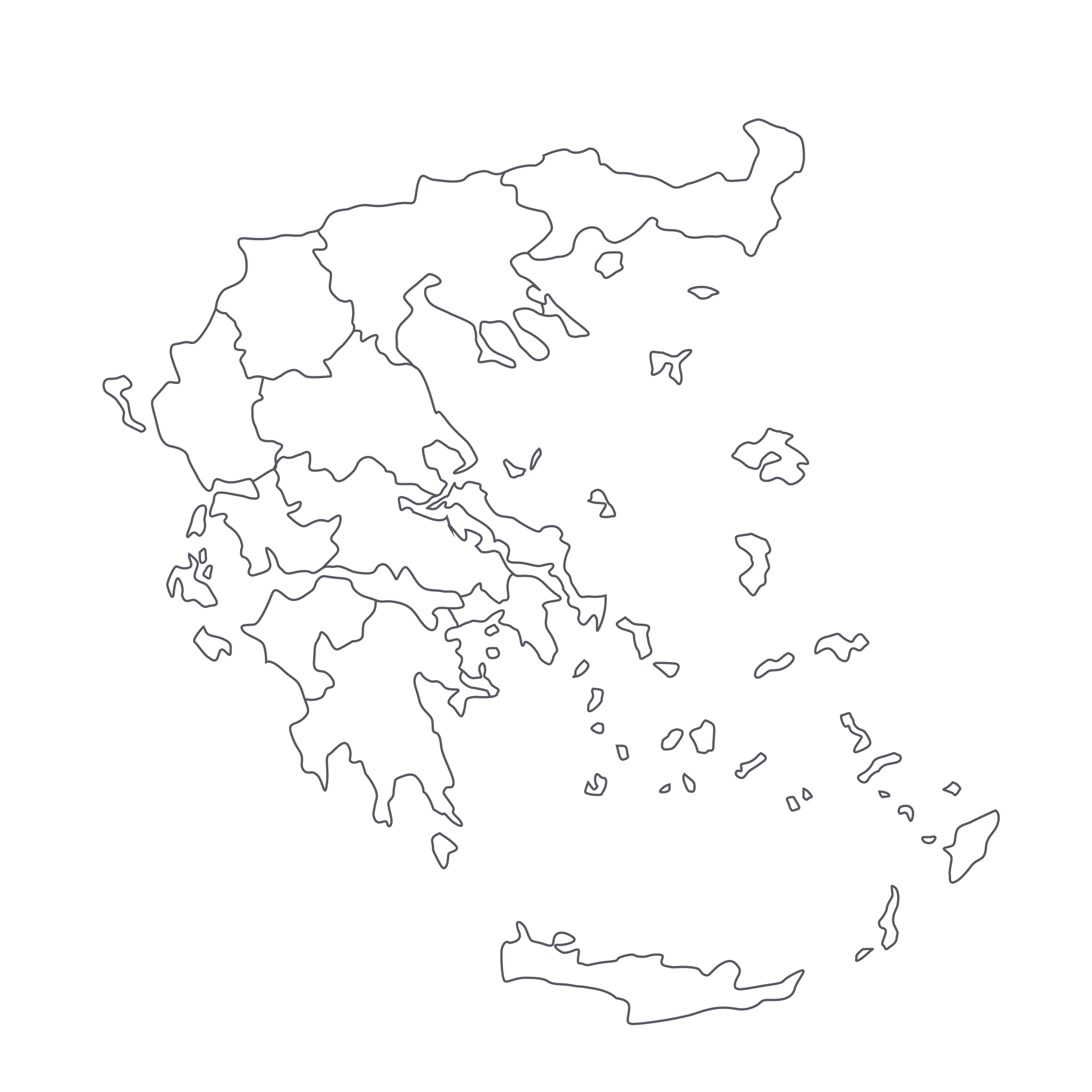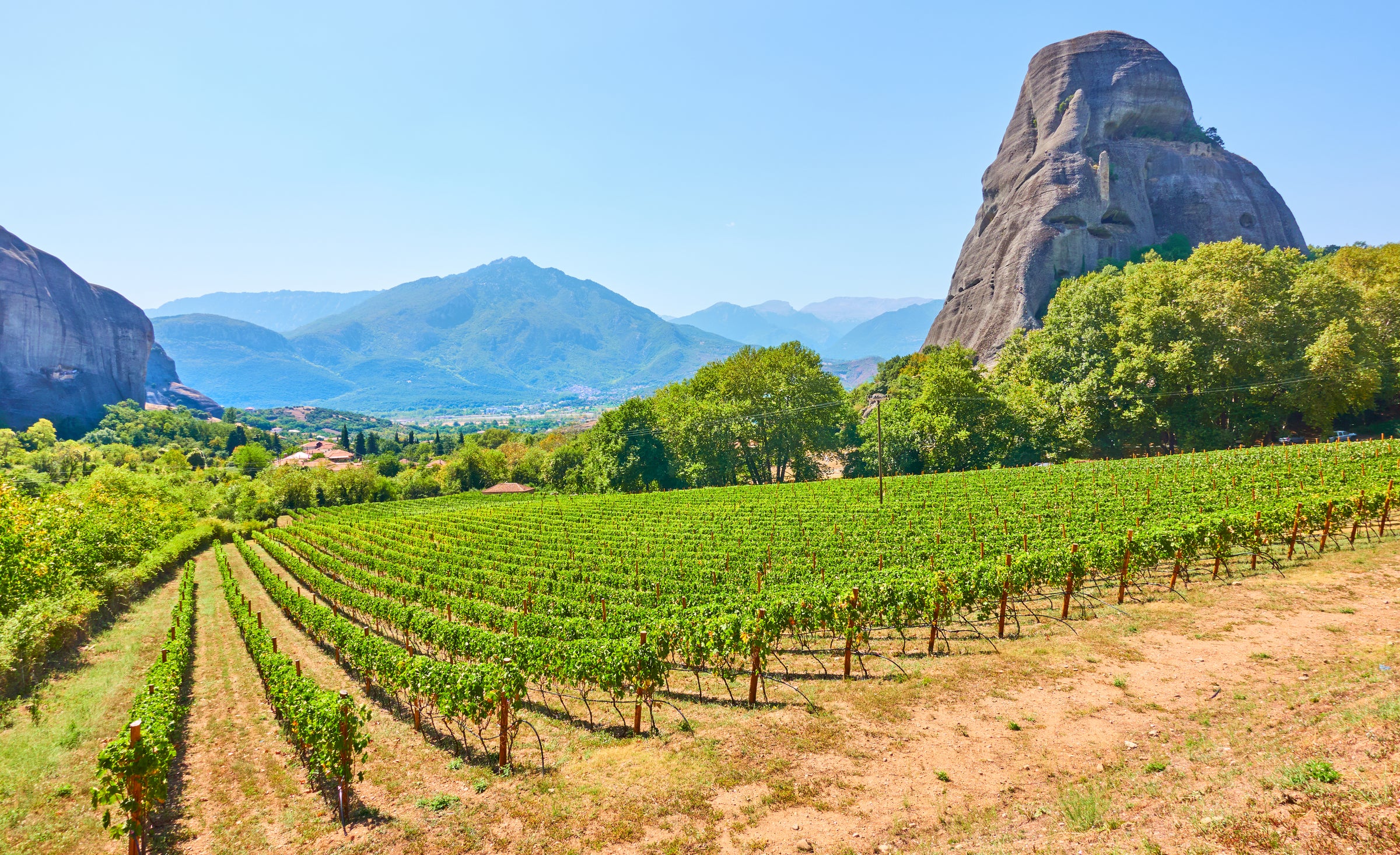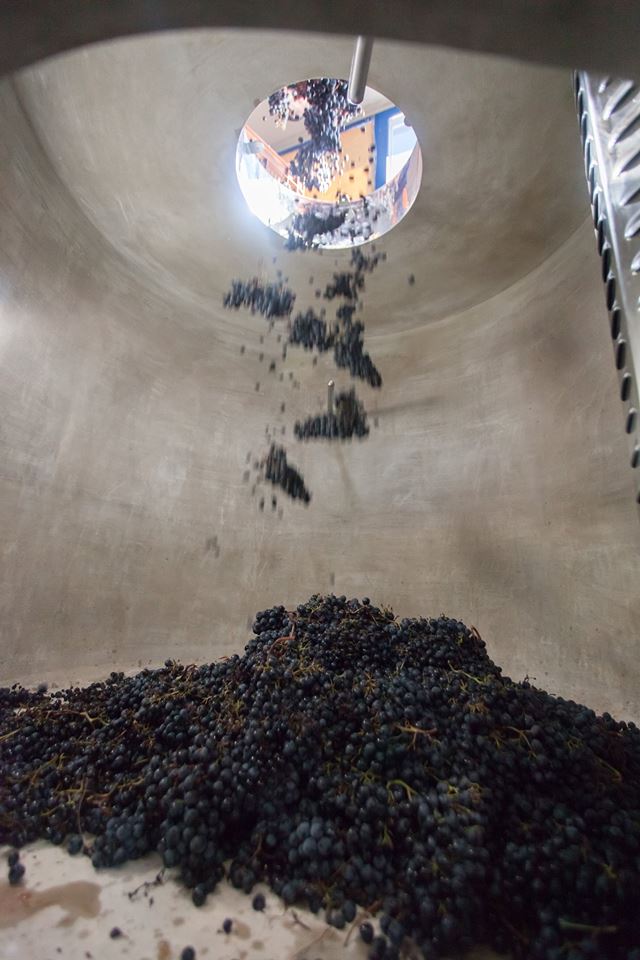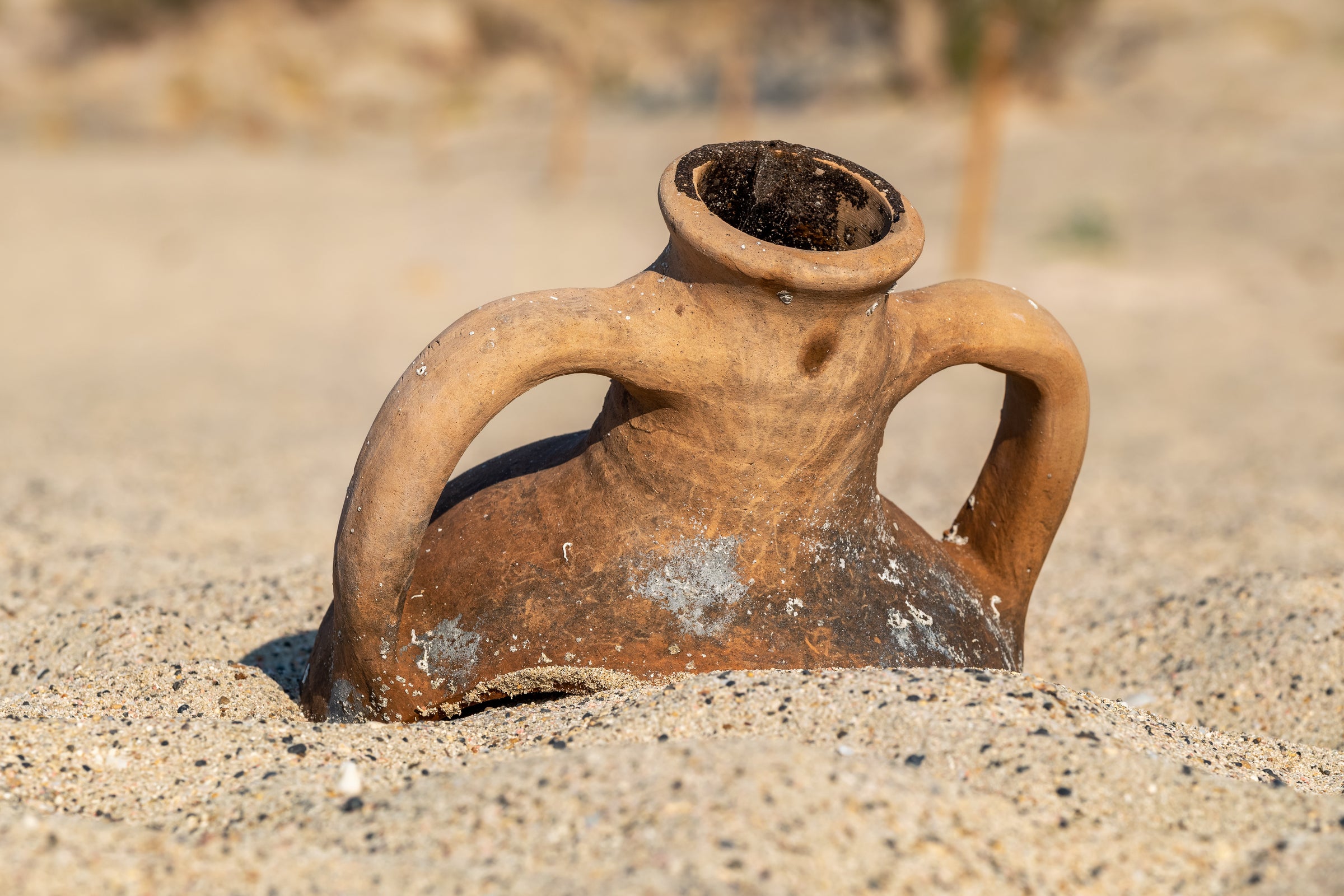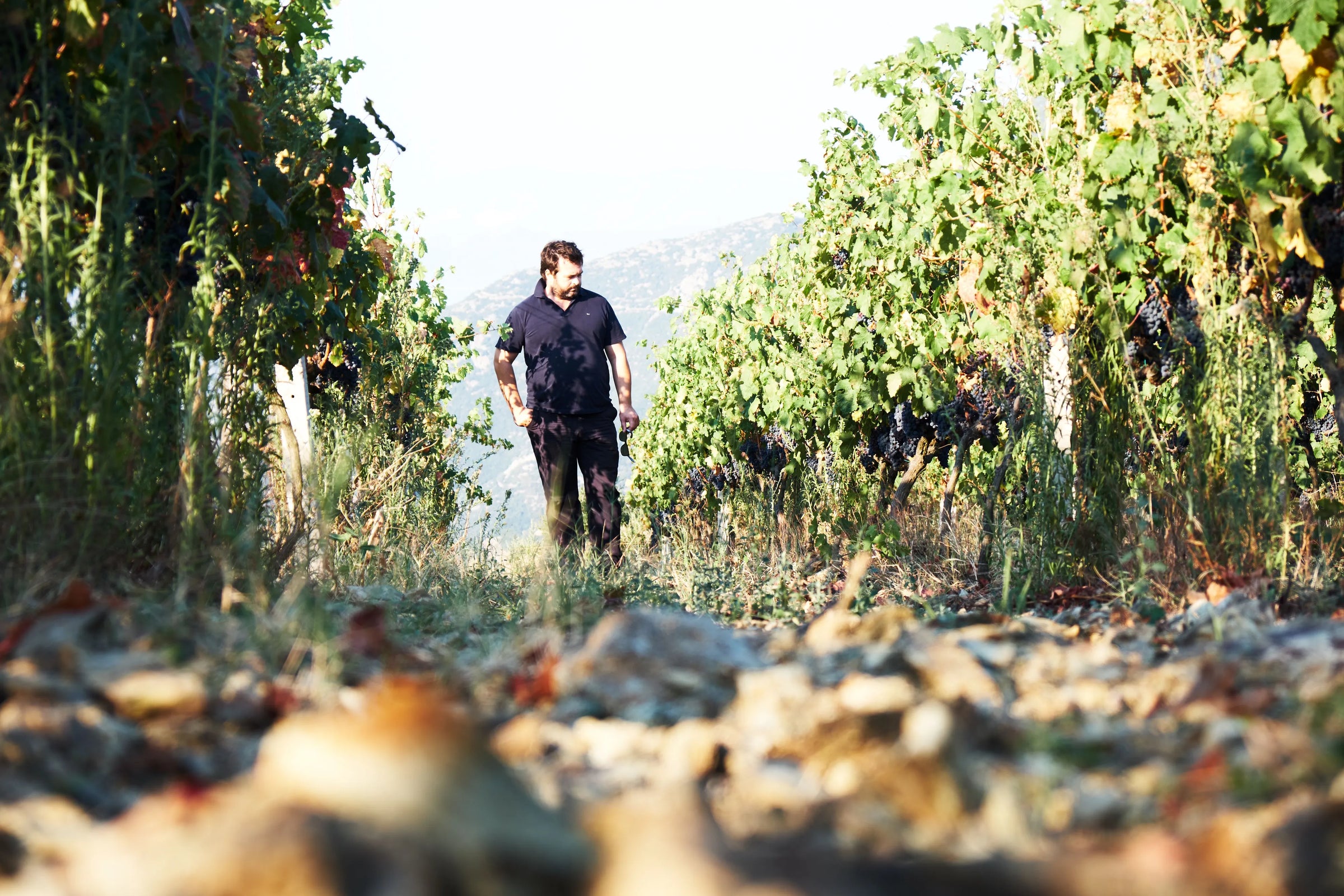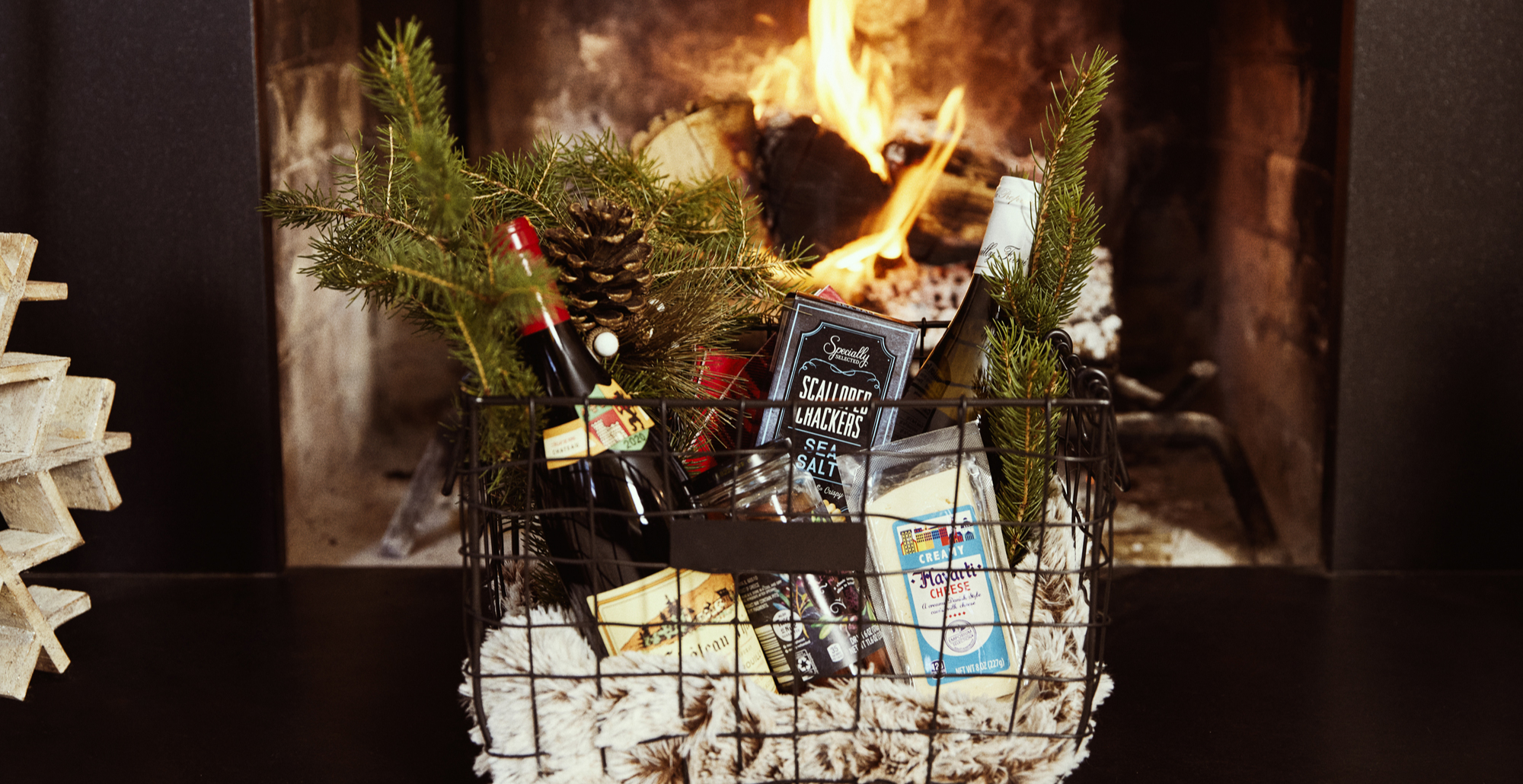At this point, especially after this morning, there’s no longer a need to “sell you” on Santorini, let alone Hatzidakis. Instead, my aim is to keep the introduction as brief as possible because we have such little wine to spare. Earlier today, a few dozen lucky customers were able to secure Hatzidakis’ 2019 “Skitali,” and we’re now taking you to the other end of the spectrum with “Nykteri.” Even fewer will be able to own this one.
This prized wine is composed of Hatzidakis’ ripest, century-old Assyrtiko vines, and is aged entirely in French oak. It’s also an exceedingly age-worthy, Grand Cru-equivalent cuvée that demands your patience. Even if you’re not a collector, I implore all of you to cellar this—the payoff will be extraordinary. I know because we tasted through a range of Nykteri bottlings at the estate just months ago, and when the 2015 was poured, we nearly hyperventilated from its sheer pleasure and sensory overload. Today’s rare 2019 will enjoy that same fate in a few years’ time. Up to three bottles per person. After today, you’ll be lucky to encounter this again!
If you know Santorini, you know “The Wizard of Wine,” Haridimos Hatzidakis. This was a mastermind who toiled for decades, conducting innovative, industry-leading work that still reverberates today. Considered by many to be the most talented winemaker to ever grace the island, he spent his life being a fearless champion for natural farming and low-intervention winemaking. His vinous creations first stunned locals in the ‘90s, followed by importers, before eventually making their way onto top wine lists and into retail shops around the world. Quite simply, the Assyrtiko grape would not enjoy the global fame it does today without him. Although his untimely death in 2017 shocked the wine community, his close-knit team, led by his wife and eldest daughter, forged ahead in his memory. We’re now three vintages removed from his passing, but the spirit of Haridimos still resonates strongly, not just in his wines but also in the newly constructed underground winery that had long been his dream.
Sometime between 1645 and 1500 BC, the volcanic eruption of Thera on modern-day Santorini became one of the largest seismic events in recorded history, leaving behind a crescent-like caldera in the midst of the Aegean. Believed to be over 100 times more powerful than the 1980 eruption of Mount St. Helens, the blast, among other natural fallout, discarded megatons of ash and lava that now make up the igneous soils of Santorini. I’m amazed that we’re able to offer wines like this—wines from places so extreme and remote it seems impossible that they’d be consumed, let alone known about, anywhere other than where they’re made.
But here we are, offering up an evocative white from mythical Santorini, where seaborne breezes are so fierce that growers must fashion their vines into short, basket-like coils instead of training them on trellises. Vineyards on Santorini, rooted in infertile, ashy sands, look like rows of large nests, in which you might find dinosaur eggs instead of grapes. Many vines here are very old, sometimes hundreds of years, as Santorini is one corner of the world that never had to contend with the phylloxera louse that destroyed most European vineyards due to its sandy volcanic soils. Another peculiarity is that because rainfall is scarce in Santorini and there’s no irrigation, the vines grab what little hydration they can from the moist sea air—that salty trait is always perceptible in Hatzidakis’ wines.
“Nykteri” roughly translates to “working the night away” in Greek because these wines were traditionally harvested before dawn. Today, it refers to a special category of powerful, deeply concentrated Assyrtiko that typically matures in oak. Hatzidakis’ 2019 comes from organically farmed, 100+-year-old Assyrtiko vines—picked at extreme ripeness—in the prized cru of Megalochori. In the cellar, it fermented on indigenous yeasts after 12 hours of skin contact and then matured on lees for 12 months in French oak of various sizes. It was bottled unfiltered with minimal sulfur. After an additional year in bottle, the wine was released.
Because this 2019 is so tightly coiled and bristling with nerves, I hesitate to even write tasting notes on it right now. Really, there’s only one thing to do if somebody finds themselves in the rare position of owning this young bottling of Hatzidakis Nykteri: quickly stash it away in your cellar and forget it exists until its fifth, sixth, or seventh birthday. Let this mature in a dark, cool place until 2024-25 and you’ll discover the stunningly rich and complex singularity of oaked Assyrtiko with age.
